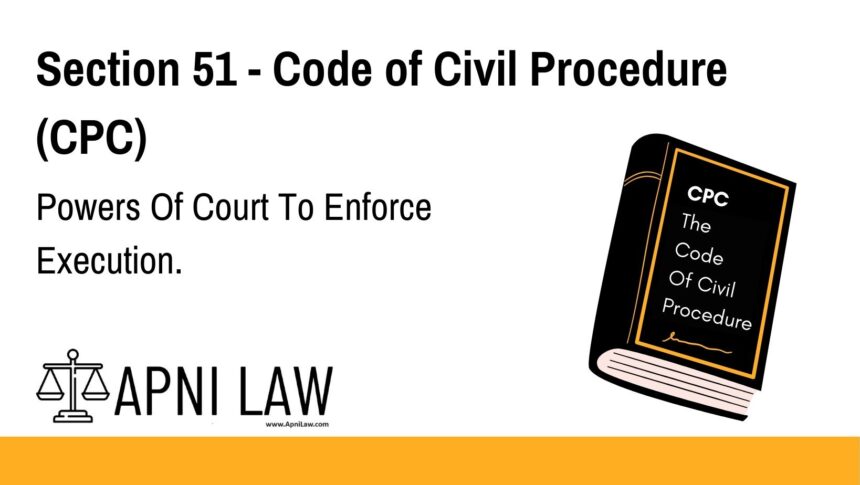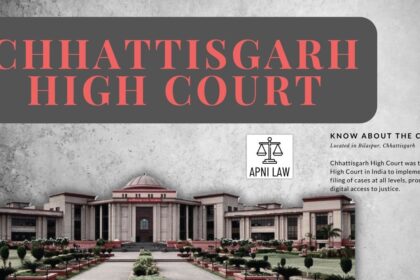Code
CPC Subject to such conditions and limitations as may be
prescribed, the Court may, on the application of the decree-holder, order execution of the decree(a) by delivery of any property specifically decreed;(b) by attachment and sale or by the sale without attachment of any property;(c) by arrest and detention in prison1[for such period not exceeding the period specified in section 58,
where arrest and detention is permissible under that section];(d) by appointing a receiver; or(e) in such other manner as the nature of the relief granted may require :2[Provided that, where the decree is for the payment of money, execution by detention in prison shall not
be ordered unless, after giving the judgment-debtor an opportunity of showing cause why he should not be
committed to prison, the Court, for reasons recorded in writing, is satisfied–(a) that the judgment-debtor, with the object or effect of obstructing or delaying the execution of the
decree,–(i) is likely to abscond or leave the local limits of the jurisdiction of the Court, or(ii) has, after the institution of the suit in which the decree was passed, dishonestly transferred,
concealed, or removed any part of his property, or committed any other act of bad faith in relation to
his property, or(b) that the judgment-debtor has, or has had since the date of the decree. the means to pay the amount
of the decree or some substantial part thereof and refuses or neglects or has refused or neglected to pay the
same, or(c) that the decree is for a sum for which the judgment-debtor was bound in a fiduciary capacity to
account.Explanation. In the calculation of the means of the judgment-debtor for the purposes of clause (b), there
shall be left out of account any property which, by or under any law or custom having the force of law for the
time being in force, is exempt from attachment in execution of the decree.]
Perfect! Now we can draft the Section 51 CPC – Modes of Execution article in the ApniLaw SEO-friendly structured format:
Section 51 CPC: Powers of the Court to Enforce Execution
Code
Section 51 – Code of Civil Procedure, 1908
Subject to such conditions and limitations as may be prescribed, the Court may, on the application of the decree-holder, order execution of the decree:
(a) By delivery of any property specifically decreed;
(b) By attachment and sale or by the sale without attachment of any property;
(c) By arrest and detention in prison1[for such period not exceeding the period specified in section 58, where arrest and detention is permissible under that section];
(d) By appointing a receiver; or
(e) In such other manner as the nature of the relief granted may require.
Provided that, where the decree is for the payment of money, execution by detention in prison shall not be ordered unless, after giving the judgment-debtor an opportunity of showing cause why he should not be committed to prison, the Court, for reasons recorded in writing, is satisfied—
(a) That the judgment-debtor, with the object or effect of obstructing or delaying execution of the decree,
(i) is likely to abscond or leave the local limits of the jurisdiction of the Court, or
(ii) has, after the institution of the suit in which the decree was passed, dishonestly transferred, concealed, or removed any part of his property, or committed any other act of bad faith in relation to his property; or
(b) That the judgment-debtor has, or has had since the date of the decree, the means to pay the amount of the decree or some substantial part thereof and refuses or neglects or has refused or neglected to pay the same; or
(c) That the decree is for a sum for which the judgment-debtor was bound in a fiduciary capacity to account.
Explanation: In the calculation of the means of the judgment-debtor for the purposes of clause (b), there shall be left out of account any property which, by or under any law or custom having the force of law for the time being in force, is exempt from attachment in execution of the decree.
📖 Source: Section 51 CPC – Powers of the Court to Enforce Execution (ApniLaw)
Explanation
- Section 51 CPC empowers the Court to choose the mode of execution appropriate to the nature of the decree.
- The main modes of execution include:
- Delivery of property specifically decreed (e.g., handing over a house or goods).
- Attachment and sale of the judgment-debtor’s property.
- Arrest and detention in prison, subject to Section 58 limitations.
- Appointment of a receiver to manage property for satisfying the decree.
- Any other method consistent with the nature of the decree.
- For money decrees, detention in prison is strictly conditional:
- The Court must give the judgment-debtor a chance to show cause.
- The Court must record reasons in writing justifying detention, such as:
- Risk of absconding or concealing property.
- Deliberate refusal to pay despite having the means.
- Money held in a fiduciary capacity.
- Certain property exempt from attachment (like agricultural land in some states, or other legally protected assets) is ignored while calculating means.
Illustrations
- Example 1 – Delivery of property
- A decree orders transfer of a car to the decree-holder. The Court may directly order delivery of the car.
- Example 2 – Attachment and sale
- For a money decree, the judgment-debtor owns property that can be sold. The Court attaches and sells it to satisfy the decree.
- Example 3 – Detention in prison
- A judgment-debtor refuses to pay a decree of ₹10 lakh despite having bank balance and attempts to flee. The Court may order detention after following due procedure.
- Example 4 – Receiver appointed
- A factory is under dispute and cannot be immediately handed over. The Court appoints a receiver to manage it and ensure proceeds go to the decree-holder.
Common Questions and Answers
1. Can the Court choose any mode of execution?
✅ Yes, Section 51 allows the Court discretion, subject to the nature of the decree and prescribed limits.
2. Is imprisonment a default method of execution for money decrees?
❌ No. Imprisonment is only in special circumstances, and the judgment-debtor must be given a chance to explain.
3. What is meant by “property exempt from attachment”?
👉 These are properties protected by law or custom (e.g., some agricultural land, essentials for living). They are excluded when calculating the judgment-debtor’s means.
4. Can the Court appoint a receiver for movable property?
✅ Yes, receivers can be appointed for both movable and immovable property, where necessary to protect decree-holder’s interest.
5. Why does Section 51 emphasize recording reasons in writing?
⚖️ To ensure transparency and prevent abuse of power, especially in cases involving detention of the judgment-debtor.
Conclusion
Section 51 CPC provides comprehensive powers to the Court to execute decrees efficiently and fairly. It balances the decree-holder’s right to enforcement with safeguards to protect the judgment-debtor, particularly in cases of detention in prison.
👉 Read more: Section 51 CPC – Powers of the Court to Enforce Execution (ApniLaw)








